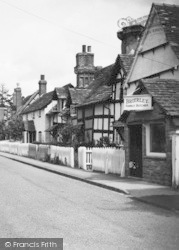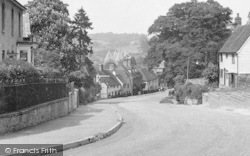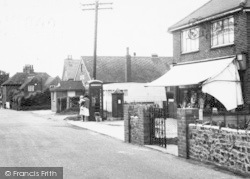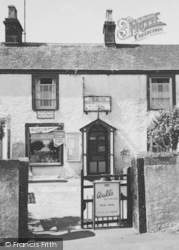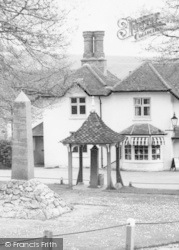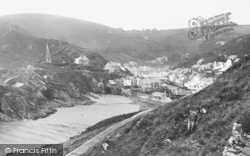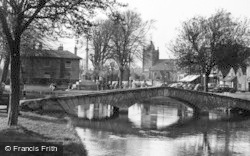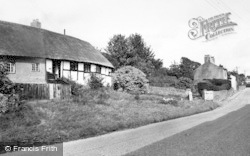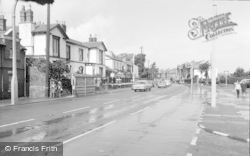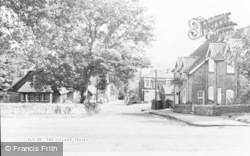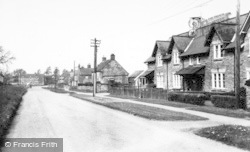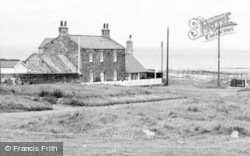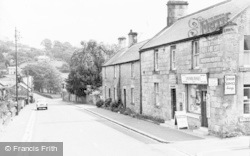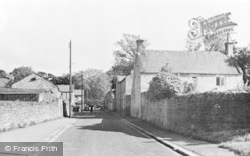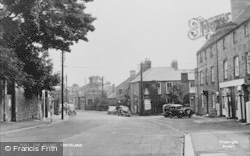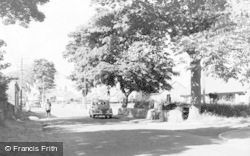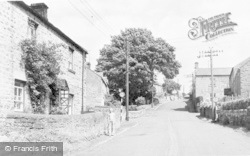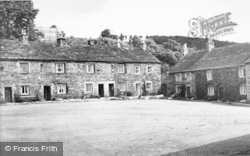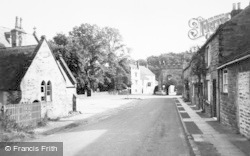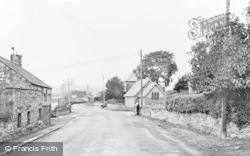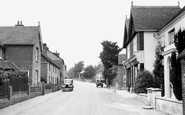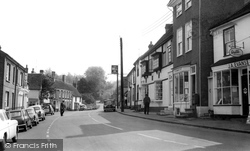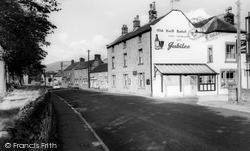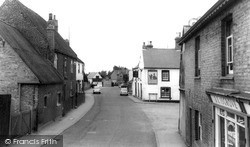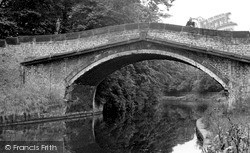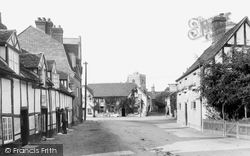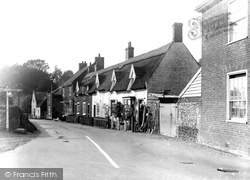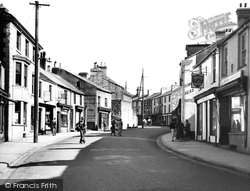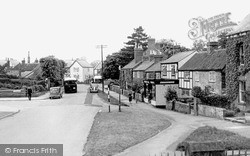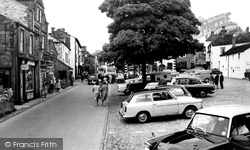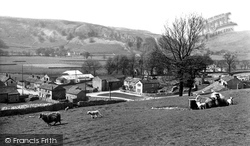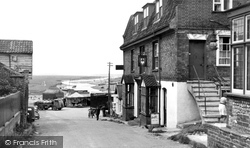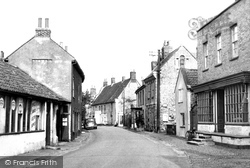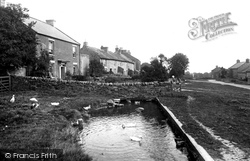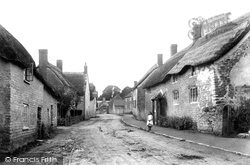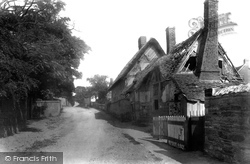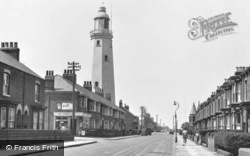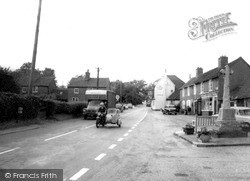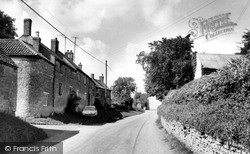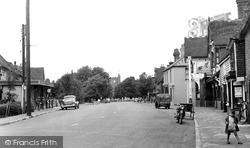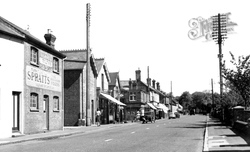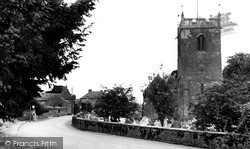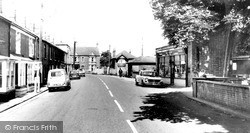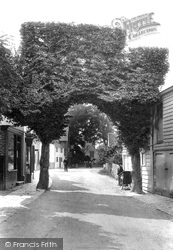Places
5 places found.
Those places high-lighted have photos. All locations may have maps, books and memories.
Photos
9,649 photos found. Showing results 1,021 to 1,040.
Maps
18 maps found.
Books
13 books found. Showing results 1,225 to 13.
Memories
4,612 memories found. Showing results 511 to 520.
Pit Village In My Youth
My name is Ken Orton and I lived in Thornley from 1947 until 1974, the year I married. I was born in Shadforth but my parents moved from there to Thornley when I was about one month old. We lived at 72, Thornlaw North until ...Read more
A memory of Thornley by
Summer Holidays
Does anyone remember Woodchurch caravan park? We used to go every year from 1969 until its closure in 1973. My aunt and uncle had a caravan there. If you came up from the village it was past the windmill over the crossroads and ...Read more
A memory of Woodchurch in 1973 by
Birthplace And Never Forgotten When Asked
I was born in Dysart to a mining family of 5 brothers, me being in the middle. My mum watched over us all and used to take us walks by the man in the rock along to Wemyss and back via the castle estate. ...Read more
A memory of Dysart by
Growing Up
North Somercotes played a large part in my growing up, I lived with my parents, sister and brother on the Lakeside Lido in St Annes Avenue, next to my friend Cherry Mayfield. I particularly remember when we both had chickenpox ...Read more
A memory of North Somercotes in 1968 by
Jossrega 22 Bush Road Cuxton Near Rochester
Cuxton is the village my wife lived in before our marriage, after I married her we used to spend weekends here with her parents. I really loved spending time together, just us and Mr Benny B, our dog. I wish I could go back to those happy days together, she was lovely to love. James G Brown
A memory of Cuxton in 1970 by
The High Street Sayer's Store 'nim' And Phyl Alen
My name is Barbara Tester and I live in Brisbane, Queensland, Australia. My beloved (late) husband, Brian Tester, was born on 26th July, 1930 at No. 1 Station Cottages, 1 Station Road, Ardingly. His ...Read more
A memory of Ardingly in 1958 by
Combe St Nicholas School During The Second World War Period
My father and mother-in-law lived in Combe St Nicholas during the Second World War. My father-in-law taught at the local school. He then went to war and was a prisoner of war in ...Read more
A memory of Combe St Nicholas in 1940 by
Holidays With Grandad
Thank you for showing the photo of Bank Houses, the house on the right was where my grandad lived and I spent a lot of very happy holidays there. His garden was aways full of lovely things to eat and as I lived in an ...Read more
A memory of Somersham in 1954 by
Name Change
Interesting to see the photo entitled "Solva, Middle Hill". The village shown here is known as "Middle Mill" and the mill (on the River Solfach) is in the centre behind the bridge.
A memory of Solva by
Found Memories Of Early Days At Yealmpton
Now living in Australia and having revisited Yealmpton in recent times, the changes are amazing. Where there used to be fields in which I played with mates, sadly houses now stand. The old bridge, church, ...Read more
A memory of Yealmpton in 1950 by
Captions
5,016 captions found. Showing results 1,225 to 1,248.
Many of the buildings remain, almost unchanged. The post office stands on the right, with a stamp machine on the wall outside.
Another view of the centre of the village, showing the Old Hall Hotel on the right and the raised, walled churchyard on the left.
The centre of the village is located around the White Horse public house (centre right).
A Moore resident keeps a look out for a rare commercial barge making its leisurely way along the Bridgewater Canal.
This photograph of Bray shows the village centre, with the perpendicular chalk and stone tower of the parish church of St Michael peeping above the rooftops.
This pretty village has a number of attractive houses. This picture shows the varied building materials used in Norfolk: flint, clay-lump and the famous Norfolk Red brick.
Bethesda, a village born of slate and the workings of the Penrhyn Quarry, has always had a vibrant community.
We are looking from beside the church of St Wilfred; the view is little altered today. However, the small village shop extension has disappeared.
Parked cars fill the cobbled square at Grassington, the pretty Wharfedale village whose wealth was founded on lead mining in the nearby limestone hills.
The limestone village of Conistone in Wharfedale is more correctly known as Conistone-with-Kilnsey, with its twin hamlet sheltering under the impressive overhang of Kilnsey Crag across the river.
Flint and brick feature predominantly in traditional Norfolk buildings, particularly so in the pretty village of Blakeney, seen here looking down towards the marshes.
Cley (rhymes with sky), once a busy port, is now a sleepy village, where nothing much has changed since this photograph was taken.
Just north of Leyburn is this fine village complete with a large green.
Looking westwards along the village street from near the Loders Arms (far left) we can see the Farmers' Arms Inn (centre) and trees at Loders Court, behind Church Farm House (centre).
There are a number of 16th- and 17th-century half-timbered cottages in this photograph, but judging by the state of some of them the village was living up to the 'Beggarly Broom' image given to it by
The village developed into a holiday resort after the opening of the railway line from nearby Hull.
The Winged Spur (in the background, on the right) in the village centre is still a traditional country pub with a warm welcome for local residents and visitors.
This is the Colsterworth Road, and the lane to the left is Lord's Lane - but which Lord it does not state.
This is the Colsterworth Road, and the lane to the left is Lord's Lane - but which Lord it does not state.
Headcorn stands on the River Beult and is a large village with a single broad, straggling street. On the right outside the George and Dragon is a motorcycle with an unusual basketwork sidecar.
A village on the eastern edge of the St Leonards Forest at a high point on the London to Brighton trunk road. The Red Lion, c1550, is an old coaching inn.
The village lies east of Rushton Hall's park. This view looks east, the road curving past the churchyard towards the hipped roofed Thornhill Arms in the distance.
Outwell and Upwell together make up one large village running for four miles along the old course of the river Nene.
A hilltop village on the southern edge of the Worth Forest with distant views of both the North and South Downs.
Places (5)
Photos (9649)
Memories (4612)
Books (13)
Maps (18)


